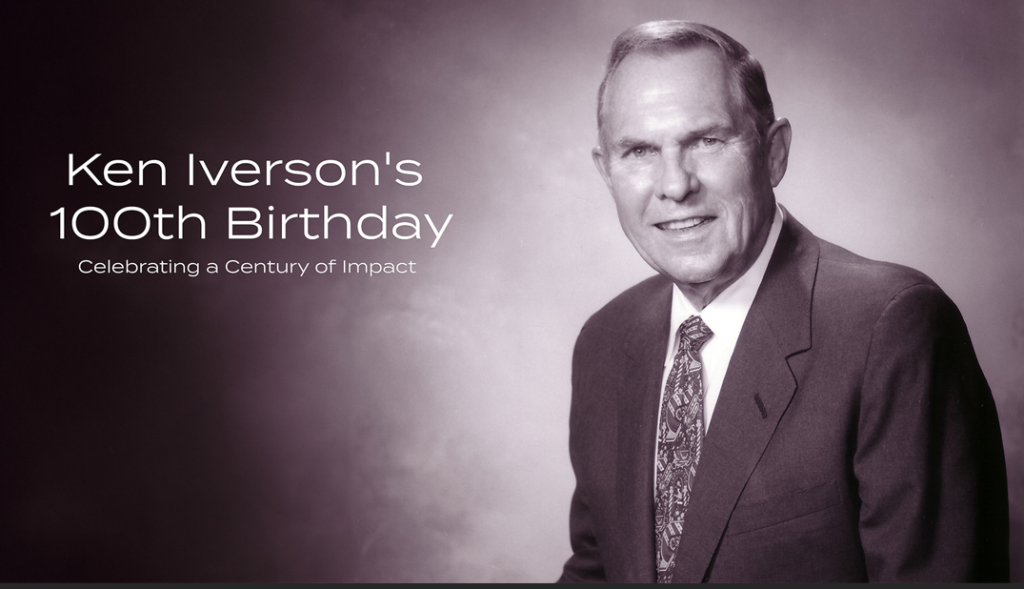Analysis

September 28, 2025
Final Thoughts: The long shadow of Ken Iverson
Written by Ethan Bernard
Renowned Nucor Chairman and CEO Ken Iverson would’ve turned 100 on Sept. 18 of this year.
The occasion gave the Charlotte, N.C.-based company a chance to commemorate the iconic exec, and to celebrate the long shadow he continues to cast over the US steel industry.
“Ken’s management philosophy focused on the virtues of smallness,” a Nucor spokesperson said in a statement to SMU.
In his book Plain Talk, Iverson says, “Communication is probably the greatest virtue of smallness.”
He advocated that the more lean your management system is, the better.
“While our corporate office is much larger than it was in Ken’s day, we still have only 300 employees sitting at our corporate office serving 32,400 other teammates,” the spokesperson said.
Iverson was born in Downers Grove, Ill., in 1925. He served in the Navy in World War II, achieving the rank of lieutenant. He got a degree in aeronautical engineering from Cornell University, and subsequently a master’s degree from Purdue University in 1947.
Iverson worked as a research physicist and engineer, and in 1961 joined the then Nuclear Corp. of America as general manager. In March 1965, the company filed for bankruptcy, at which point Iverson took the helm.
He had been the head of the company’s only profitable business, a steel fabricator called Vulcraft. The other businesses were either sold or liquidated.
The company changed its name to Nucor in 1972 – and began its long march to eventually reign as North America’s largest steelmaker.
Iverson was named steelmaker of the year by Iron Age in 1991. He resigned as CEO of Nucor in 1996 and retired as chairman in 1998.
He passed away in 2002, having been married to his wife, Martha, for 56 years.
In honor of what would’ve been his 100-year birthday, Nucor distributed a discussion guide around Plain Talk to all its employees.
Some of the key points like “trust your instincts” in decision-making can serve as a personal guide as well as in business.
“That autonomy, that acceptance of decision-making responsibility and accountability, is something the people in our company refuse to live without,” Iverson says in Plain Talk.
Others like “destroy the hierarchy” are particular to Nucor’s business culture. Keep the team structure lean, and channels of communication open.
In general, the US steel industry is lot leaner than it used to be, and cleaner. The shift to majority electric-arc furnace (EAF) steelmaking has made it the cleanest in the world.
When I toured the Nucor Steel Berkeley mill in South Carolina, near Charleston, with SMU’s Steel 101 a couple years ago, I saw firsthand that open communication and leanness at work.
Standing in the pulpit, you really get to appreciate how far steelmaking has come. And the innovation shows no signs of slowing down.
With investments in nuclear fusion and small modular nuclear reactors, Nucor is definitely putting the “nuclear” back in its name. Meanwhile, it continues to build new mills – most recently a new sheet mill West Virginia – and to invest big time in downstream businesses.
Still, behind it all is the Plain Talk philosophy of its transformational exec Ken Iverson. Maybe we should all dust off our copy.
(Note that biographical information is taken from Ken Iverson’s Wikipedia page.)







